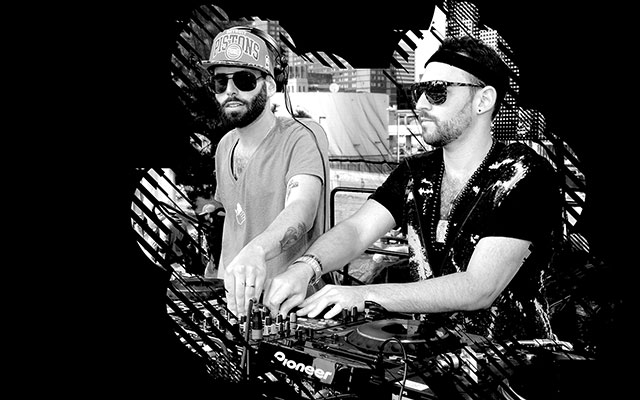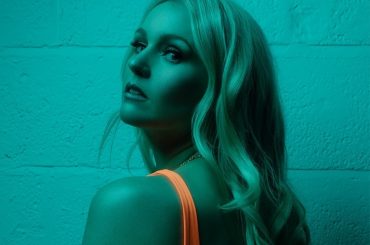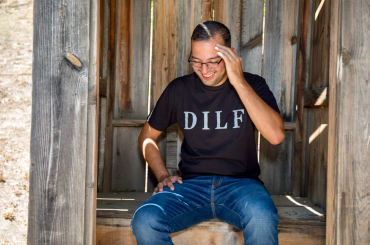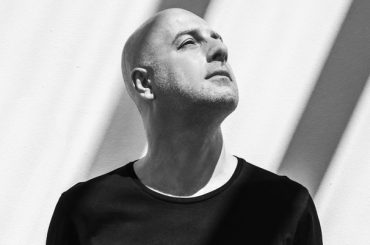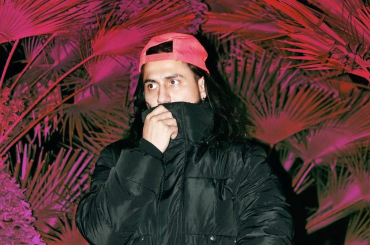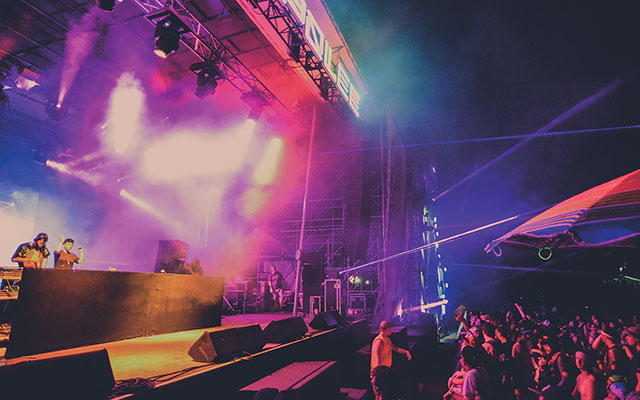
DJ Times: How did you discover dance music?
Goldstein: For me, it was via jazz and hip hop, which led to jungle and house.
Levine: My awakening was at a summer camp in the ’90s. I had a few counselors who were from the U.K. and The Netherlands, and they introduced me to the sounds of breakbeat, hardcore, drum-n-bass, Aphex Twin, and The Orb. My American camp counselors put me onto black music like Parliament-Funkadelic, Gap Band, and the Isley Brothers.
DJ Times: What was the first dance-music event you attended?
Levine: The first party I went to was in Toronto. It was called Hullabaloo. It was a happy hardcore party, but they also had a house room and a jungle room. My ears really perked up in the house room because I could hear the samples and influences from soul music.
Goldstein: I went to a party called Boom at the Bahama Beach Club in Nashua, N.H., and I thought, “Oh my God! This is the most amazing thing in the world.” They threw that party every Friday night and it went until 6 a.m. I still think about that moment around sunrise, when they used to throw open the doors. The music would still be playing and everyone would keep dancing underneath the sunbeams. It was the ultimate. I was in love.
DJ Times: Eli, can you paint a picture of your old Boston DJ crew, Elemental Compounds?
Goldstein: Sure. I played a lot of jungle and drum-n-bass in high school, and I linked up with a guy I knew from local parties who went by the name Mr. Lex. We threw a few parties together and that turned into Elemental Compounds, a jungle music crew that included a lot of local DJs.
Levine: You were also playing garage at the time, which brought you and me together. Both of us were collecting a distinct kind of U.K. garage-meets-house sound, and those sounds connected what was going on in deep house to U.K. garage, and also to drum-n-bass. There was a lot of mixing and melding of genres.
DJ Times: How did Soul Clap first begin?
Levine: A friend introduced us in the late ’90s and we noticed we had a mutual respect for certain records. We started going record shopping together and eventually we realized that we were buying a lot of the same ones. So, we decided to build a collection together. That served as the foundation for our friendship and our music.
DJ Times: When and where was your first DJ gig together?
Goldstein: Charlie and I got thrown together in 2001 at a party in Washington, D.C.
Levine: That party was called Mandate. My friend Adam Freeburg and I had a production company named Deservedly So Productions. We threw another party in Boston, and we booked Eli ahead of time for that one. It was the first time Eli was listed on a flyer!
DJ Times: Was that night the birth of Soul Clap?
Levine: Yeah! Soul Clap was the fusion of my funk and disco roots and Eli’s garage and jungle roots. We did a mix together back then called “Disco Step 2001” which was two-step and disco-house.
Goldstein: It’s on MixCloud somewhere.
Levine: It was a cool mix, man. In the beginning, Soul Clap was Eli and I putting our two influences together to create a new sound. But now, I think we’ve become the torchbearers of the legacy of the Paradise Garage and of [soulful garage] deep house.
DJ Times: What significance did the Boston record store Vinyl Connection have in your lives?
Levine: We were teenagers and that shop was the holy grail of records. Vinyl Connection was very intimidating back then.
Goldstein: Everybody would be like, “Oh, you like house music? You have to go to Vinyl Connection, but I don’t know if they’ll let you in.”
Levine: Yeah, they would kick people out for having poor etiquette. Like, there was only one station to listen to records at. You couldn’t listen privately on headphones, so everyone had to hear what you were playing, and you only had one record at a time.
DJ Times: Did the one-record rule apply to everyone?
Levine: Yeah, unless you were “in,” and then you could have a stack of records. That process of “paying your dues” is something totally lost in today’s world. Anyway, it was an honor that the staff took such a liking to us. Caril Mitro was one of the original DJs in Boston and the owner of Vinyl Connection. She eventually became our mentor. I remember how one day Caril said to us, “House wears many hats,” and ultimately, that’s exactly what Soul Clap does! We take all these different sounds and blend them together.
Goldstein: Caril and the other guy who ran the store, Tom, taught us so much. Our introduction to disco came from them. They used to pull out record after record for us to hear.
Levine: I would also shout out DJ Con as one of our teachers. He shopped at Vinyl Connection. Dmitri from Paris and Frankie Knuckles would come by, too. Having those guys in there was a big deal for Boston.
DJ Times: What’s your process for discovering new music now?
Levine: We shop online and crate-dig in person as much as possible. But now, if we find that there’s a hole in our repertoire that we need to be filled, we go into the studio and make that music.
DJ Times: What are the names and locations of your favorite record stores?


